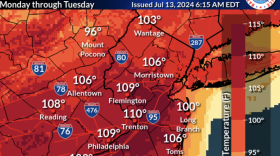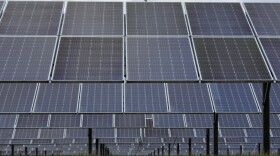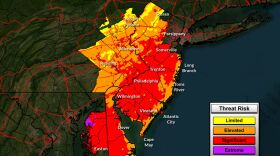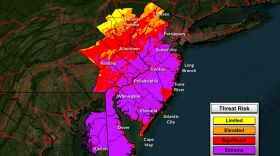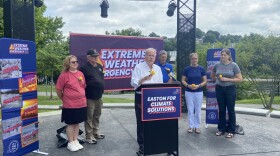-
Earth's moon will be full on Sunday night, but what does the other side look like at that time and why?
-
What started as an idea has blossomed into a bustling business. Now, husband-and-wife duo Chris and Sheri Anthony are sharing big-league aspirations for their little farm
-
For almost a century, hikers have trekked the Appalachian Trail, the world’s longest hiking-only footpath. A thru-hiker documenting her trek on social media recently stopped in the Lehigh Valley.
-
The National Weather Service has issued a heat advisory and excessive heat watch for the Lehigh Valley and southeastern Pennsylvania. The heat advisory will be in effect from Sunday into Monday. Then the temperature really turns up, with heat indexes in triple digits.
-
The position, budgeted for one year after the annual process turned contentious, focuses on creating and facilitating sustainability initiatives while capturing grant funding to cover the cost of related projects.
-
The start of Lehigh Gap Nature Center’s annual hawk watch is just over a month out, and preparations are well underway. A tradition in its 64th year, volunteers count birds of prey as they migrate along the raptor "superhighway" in the Lehigh Valley’s backyard.
-
Funding was awarded through the Lehigh Valley Greenways Mini Grant Program. The program aims to protect and promote natural resources through the implementation of ready-to-go, single-year projects.
-
With other communities around the state adopting bans on plastic bags, Lower Saucon could be on its way to something similar. if approved, it would involve a transition process to show shoppers the bigger picture and give time for businesses to properly offload plastic bags on hand.
-
Allentown and Easton have been paired with an engineering company to reduce energy costs and greenhouse gas emissions. It's Allentown's first time, but Easton's second, in the program.
-
Environmentalists say the Lehigh River is the cleanest its been in 175 years. A river snorkeling program at Lehigh Gap Nature Centers encourages residents to explore their local waterways and track river health.
-
After devastating flash flooding in Texas earlier this month claimed the lives of at least 135 people, scientists and experts are warning similar conditions could happen in the Lehigh Valley.
-
Sustainable Pennsylvania is a voluntary program focused on helping municipalities improve sustainability to save money, conserve resources and improve residents’ lives.
-
This week, a look forward to one of the year’s best meteor showers, the Perseids.
-
Dangerous heat is expected Monday through Wednesday in the Lehigh Valley, with concerns of excessive rainfall on Thursday before much cooler air arrives.
-
Lehigh Valley Planning Commission advised against a change in Plainfield Township's landfill ordinance that could potentially grant more power to landfill operator Waste Management.
-
Excessive humidity and extremely warm temperatures have prompted a heat advisory for the Lehigh Valley on Friday. On top of the heat, there's a risk of severe weather and an unsettled weekend ahead.
-
Part of Climate Action Campaign’s Extreme Weather Emergency Tour, the event centered on how extreme weather, exacerbated by climate change, has deadly consequences.
-
Easton City Council approved a measure to partner with Solsmart, an organization which helps facilitate the growth of solar energy communities across the country, at their Wednesday meeting.
-
While The Dorothy Rider Pool Wildlife Sanctuary is closed to the public after an April bridge collapse, officials had to get inventive — and adventurous — for camp to happen this summer.
-
The Da Vinci Science Center and Friends of the Allentown Parks are partnering to make science more accessible to Allentown kids and open their eyes to what's around them.
-
Lehigh Valley Planning Commission is opposed to a request by Waste Management to amend the Plainfield Township zoning ordinance regarding the sanitary landfill in the township.
-
Lehigh has been hosting SSP’s International’s Summer Science Program this summer. During the five-week course, students get hands-on experience completing college-level research while getting a feel for campus life.





